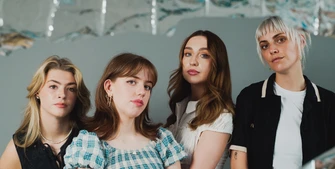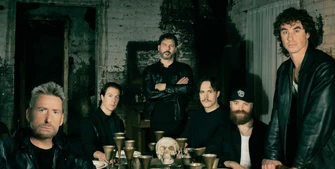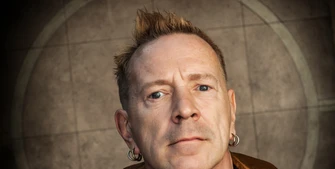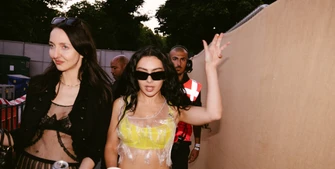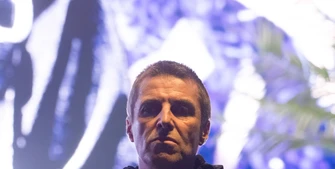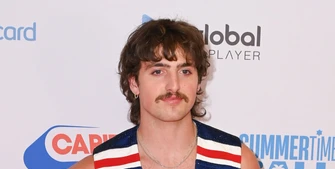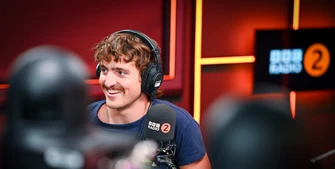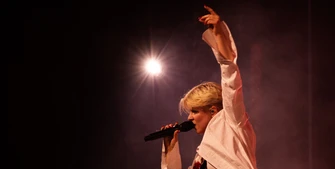The Afro House Takeover: How Black Coffee, Keinemusik and HUGEL are Leading the Charge
Music festival season is officially here and Afro House is leading the charge. But how did this underground sound become a global phenomenon? Meet the artists driving the revolution and reshaping electronic music one beat at a time...
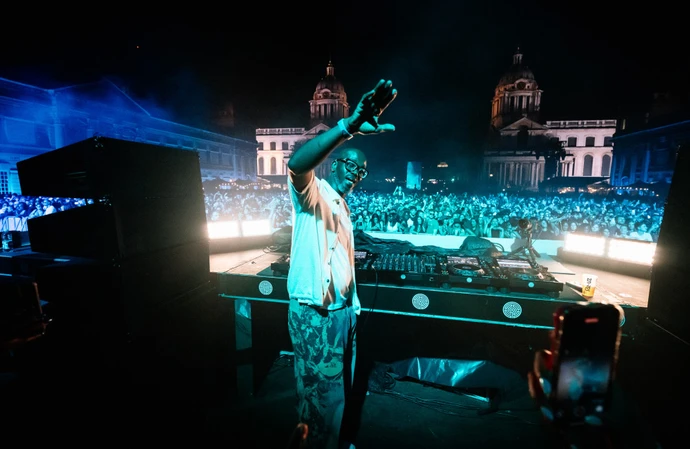
Let’s get one thing straight! Afro House isn’t just having its moment. It’s been quietly building a continent-spanning, boarder-breaking empire for decades. Only now is the rest of the world just waking up.
You’ve probably heard it creeping into festival sets, seen it dominate Boiler Room uploads, or danced to it on the beaches of Tulum, Mykonos, Ibiza - wherever your summer takes you - and maybe even under the strobes at Berlin’s Berghain, without even realising.
But this isn’t just background music, it’s a movement. Once deeply rooted in South African townships, now reborn through Berlin basements, Ibiza sunsets and viral TikTok reels.
The DJs and Producers Taking Over Your Summer
If you’re confusing Afro House with Afrobeats, you’re not alone, but they’re definitely not the same thing. Both come from Africa, sure, but Afrobeats is more pop, dancehall and hip-hop flavoured (think Burna Boy, Wizkid). Afro House, by contrast, is rooted in club culture - hypnotic, spiritual and anchored in rhythm.
To understand Afro House’s rise as a subgenre, you need to go back - way back - to the 1990s in South Africa.
Emerging as an offshoot of Kwaito and early deep house, producers in townships like Soweto and Umlazi began layering traditional percussion, chants and spiritual vocals over house music’s steady 4/4 beat. The result: ancestral, ceremonial and electronic music made for the dancefloor.
Artists like Black Coffee, Culoe De Song, and DJ Merlon were among the early architects, transporting the sound from township clubs to global stages.
Black Coffee: The Godfather of Afro House
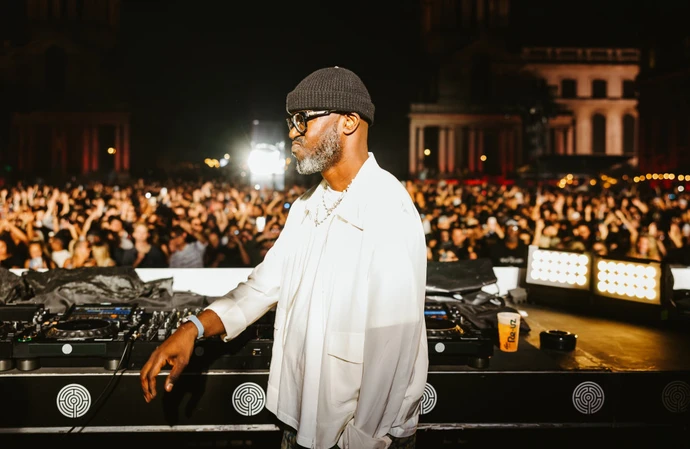
Black Coffee brings down the house at Old Royal Naval College/ Photo Credit:Sienna Lorraine Gray
Let’s talk about the man who turned Afro House into a passport to the world stage.
Born Nkosinathi Maphumulo in 1976, Black Coffee’s trademark one-arm mixing technique sets him apart in a world of high-octane DJ showmanship.
It’s a quiet confidence that reflects his journey: from humble beginnings in South Africa to commanding some of the biggest stages on the planet.
His rise has been as much about timing as talent. Emerging as a torchbearer for Afro House just as global audiences were ready for something deeper, more rhythmic and less polished than mainstream dance music, Black Coffee’s historic Coachella set in 2019 marked a defining moment for the genre.
Since then, his global listener base has grown exponentially - he now attracts around 4 million monthly listeners on Spotify, and his catalog has amassed a staggering 1 billion total stream.
Collaborations with Drake, David Guetta, Pharrell Williams and Usher further propelled his sound far beyond its roots, transforming Afro House into a worldwide phenomenon.
His landmark 2021 album Subconsciously has racked up over 185 million streams to date. In 2022, it made history by winning the Grammy Award for Best Dance/Electronic Album - marking the first time an African artist had ever received the honour.
This breakthrough moment solidified Afro House's place on the global music map.
Even pop royalty like Katy Perry couldn’t resist Black Coffee’s magnetic vibe as she was spotted dancing up a storm at his Hï Ibiza set in July last year.
Now, with millions of followers and an established legacy, Black Coffee stands as both a pioneer and a beacon for the genre’s continued ascent.
HUGEL: Marseille’s Afro House Maverick
I don’t know about you, but growing up, the soundtrack to my summers was pure Shakira – back when Latin pop ruled the charts. Hits like ‘La Tortura’, ‘Whenever, Wherever’, ‘Hips Don’t Lie’ and ‘Rabiosa’ were the anthems that just kept on giving.
But fast-forward to now and it’s HUGEL’s Afro House beats that dominate my playlist, taking summer vibes to a whole new level.
(I say this blasting his latest banger ‘Loosen Up’ ft. Dawty & Preston Harris - released June 27, 2025, on his aptly named label ‘Make The Girls Dance Records’.)
“…it’s one that gets everyone singing and dancing every time it gets played.” He told Beatport. “The mix between R&B and Afro House came together so naturally, songs like this are the reason I started Make The Girls Dance Records.”
HUGEL - pronounced Ooo-jel, not Hug-el, just FYI- didn’t stumble onto the scene overnight. He fought his way in armed with nothing but stubborn ambition and a USB stick.
Raised in Marseille, kicked out at 17 with no diploma, Florent Hugel balanced McDonald’s shifts by day and hustled club gigs by night. The self-taught DJ refused to settle or play it safe.
He even flew himself out to the Amsterdam Dance Event with one mission: corner Stefan Dabruck, manager to Robin Schulz. His persistence paid off - Dabruck signed him on the spot.
But the journey wasn’t exactly paved with roses along the way. Even as a signed artist, Hugel had to fight to stay true to his sound - often pushing back against pressure to go more commercial. Now, he calls the shots. “I do what the f**k I want,” he told Nylon. A mantra that’s less bravado and more survival instinct.
The French dynamo, known for his signature blend of ethnic rhythms and club-ready bangers, has brought Afro House’s raw energy to the mainstream without ever watering it down.
His breakout moment came in 2019 with ‘Morenita’ - a Latin House smash that went viral across TikTok and Instagram, soundtracking everything from golden-hour drone shots to sweaty street dance-offs. The track has since racked up over 184 million streams and earned multi-gold and platinum certifications across several territories.
Fast forward to 2024, and his single ‘I Adore You’ (with Topic & Arash feat. Daecolm ) proved just as unstoppable, racking up over 203 million Spotify streams - reinforcing his summer anthem status.
Now based in Ibiza, with a summer residency at Hï running June through September, HUGEL, 37, has become a fixture in the island’s soundscape, both soaking up and fuelling its sun-drenched energy. But with a monthly Spotify audience of over 26.5 million and more than 2.7 billion total streams, he’s far from just a local DJ.
Spanning Europe to Latin America, the Latin house instigator delivers raw, percussive sets that light up dancefloors and solidify his place as a leading force in Afro House.
“Freedom is everything,” he added “when you can finally be free with your art, with everything… that, for me, is when you can say, ‘I’m rich.’”
Keinemusik: Berlin’s Electronic Vanguard
In 2009, a new current began flowing through Berlin’s already saturated maze of dark warehouses, four-to-the-floor techno and a sea of serious faces under the strobes.
That current was Keinemusik - the now-iconic foursome of DJs and producers made up of Adam Port, &ME, Rampa and Reznik – carried the sounds of Africa into the city’s electronic heart and flipped the narrative on Berlin’s club music.
The high priests of house didn’t care to fit into anyone’s blueprint and built their own lane. One that now stretches from smoke-filled basements to open-air beach clubs and festival main stages across the globe.
Combining melodic house, techno and Afro House, they forged a signature sound that feels both primal and futuristic. It’s a sound that’s rooted in Berlin’s rich club culture but layered with Afro-infused percussion.
Over the past decade, they’ve evolved rom local cult heroes to international heavyweights, headlining the likes of major festivals like Coachella, Burning Man and Time Warp.
Their sets - often framed by floating peace signs and cloudy visuals, complemented by a relaxed, sun-drenched atmosphere - have become symbolic of a shift in electronic music – away from gritty, intense themes towards a focus on soulful connections that are spiritually uplifting as well as sonically engaging.
That sonic evolution hit the mainstream with Adam Port’s ‘Move’, released June 7, 2024, in collaboration with American producer Stryv and vocalist Malachiii. A perfect blend of Afrobeats and melodic house, the track first gained traction after months of live rinses at Keinemusik gigs.
By the time the Camila Cabello remix dropped in October, it had exploded - cracking the Top 10 in multiple countries, racking up millions of streams, and locking in its status as one of the defining summer anthems of the year.
Today, Keinemusik remains a driving force: Adam Port alone has over 1.16 billion total Spotify streams - including 619 million+ on ‘Move’, as well as 3.3 million daily listeners.
Afro House has firmly established itself as a headline act, no longer just a festival warm-up. Its influence continues to grow, with subgenres like Afrotech, tribal house, and deep Afro pushing the sound to the forefront of electronic music.
From Berlin’s underground clubs to the beaches of Mykonos, Afro House nights have become staples in major cities worldwide - London, São Paulo, New York, to name a few – drawing in serious crowds.
Meanwhile, platforms like Boiler Room’s game-changing ‘Amapiano to the World’ have accelerated its global rise by putting it firmly on the international map.
Subtle innovators like Grossomoddo, HVMZA and Sistek bring fresh perspectives and energy to the scene.
At the same time, established names like Solomun and Diplo are weaving Afro House elements into their sets underscoring the genre’s growing influence across electronic music.


